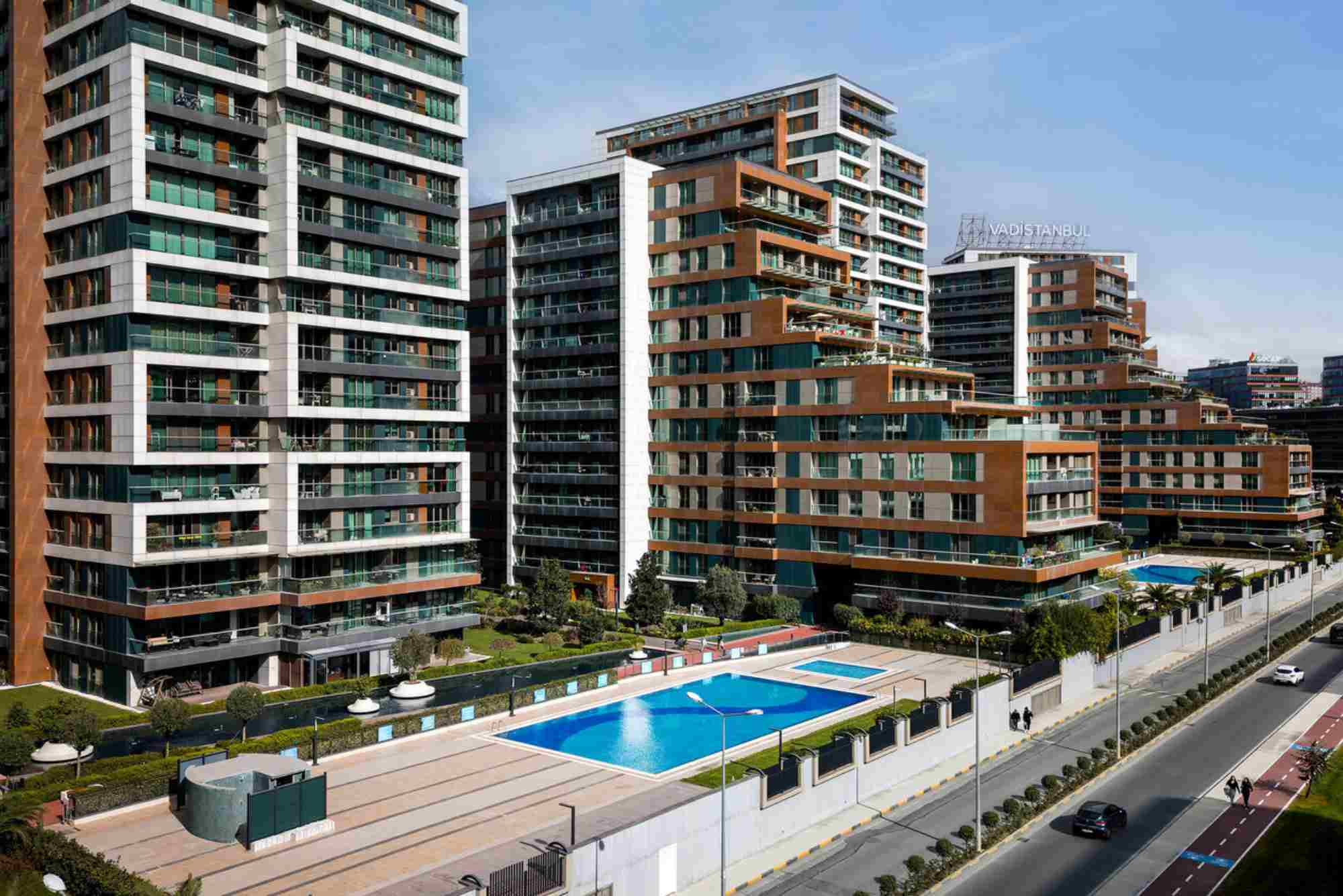Should You Invest in an Apartment Building for Sale in Turkey?
Investing in real estate can be a smart way to generate wealth, especially in a fast-growing and strategically located country like Turkey. Over the past decade, Turkey has attracted both local and international investors due to its thriving property market, promising rental income potential, and government incentives for foreign buyers. But when it comes to large-scale investments like buying an apartment building for sale in Turkey, is it worth the commitment? In this guide, we’ll break down the key benefits, risks, financial factors, and legal considerations that can help you decide if this is the right move for your portfolio.
Understanding the Turkish Real Estate Market
Turkey’s real estate market has evolved rapidly since the 2000s, driven by economic reforms, population growth, and urbanization. Cities like Istanbul, Ankara, Izmir, and Antalya have seen significant increases in demand for both residential and commercial properties. Apartment buildings, in particular, are appealing for investors looking for stable long-term income from multiple tenants. The country’s advantageous location at the crossroads of Europe and Asia further boosts its real estate appeal, especially for those targeting international renters or tourists.
Key Investment Zones in Turkey
Some of the most attractive areas for investing in apartment buildings include Istanbul’s European side, where rapid urban regeneration projects have increased property values. Coastal cities like Antalya and Alanya are also hotspots, drawing in retirees and digital nomads from Europe. Meanwhile, Bursa and Sakarya are emerging alternatives, offering lower property prices but high rental demand from students and domestic migrants.
Benefits of Investing in an Apartment Building for Sale in Turkey
One of the main draws of purchasing an entire apartment building is the potential for generating consistent monthly rental income. Unlike single apartments or houses, multi-unit buildings provide diversified cash flow and reduce vacancy risks. Moreover, the Turkish government allows foreign nationals to own real estate in most regions, and investors can even qualify for Turkish citizenship by investing a minimum of $400,000 USD.
Another advantage is Turkey’s relatively affordable property prices compared to Western Europe. Even in Istanbul, investors can acquire residential buildings at competitive rates, especially if they explore underdeveloped or gentrifying districts. Coupled with favorable exchange rates for Euro and Dollar holders, this presents a lucrative opportunity.
In addition, Turkey’s real estate laws have become more transparent over time, with clearer regulations on ownership, title deed registration, and tax obligations. The process of acquiring an apartment building is now more streamlined for foreigners than it was a decade ago.
What Are the Financial Considerations?
Before you commit to an apartment building for sale in Turkey, you’ll need to understand the financial implications. Property prices vary based on location, building age, quality of construction, and proximity to amenities. In Istanbul, for example, a mid-size apartment block can cost anywhere between $500,000 to over $5 million USD.
It’s also crucial to factor in taxes. Buyers pay a title deed tax of 4%, typically split between buyer and seller. Annual property taxes range between 0.1% and 0.6% depending on the building’s use and location. Income from rentals is also taxed, with rates starting at 15%.
Maintenance costs can’t be ignored either. As a building owner, you’re responsible for common areas, elevator servicing, roofing, plumbing, and possibly property management. Hiring a local property manager can simplify the process, especially if you’re not residing in Turkey.
For those seeking financing, Turkish banks do offer mortgages to foreigners under certain conditions. However, most foreign investors prefer to buy outright or use financing from their home countries, given that interest rates in Turkey can fluctuate.
Legal Aspects and Regulations
Foreigners can freely purchase real estate in most parts of Turkey, with some restrictions in military zones and rural lands. When considering an apartment building, ensure that all units are legally constructed and have valid habitation certificates (iskan). Due diligence is essential. You should consult with a local real estate attorney to review the property title, zoning compliance, tax debts, and tenant contracts.
Also, if your goal is to generate rental income, you’ll need to register with the local tax office and declare your income annually. If you’re offering short-term rentals (like through Airbnb), you may also require a tourism license.
Furthermore, investors buying properties worth $400,000 USD or more may apply for Turkish citizenship. The process generally takes 3-6 months and grants access to visa-free travel to many countries, healthcare, and education benefits.
Potential Risks of Buying an Apartment Building
As with any property investment, there are risks to consider. Currency fluctuations can significantly impact the return on investment for those earning in Turkish Lira but calculating profits in USD or EUR. Additionally, political and economic changes in Turkey have caused market volatility in the past.
Vacancy rates can also pose a challenge, especially in off-season months in tourist cities. To mitigate this, some investors diversify by offering both long-term and short-term rental options.
Structural quality is another concern. In older buildings, poor insulation, plumbing, or outdated heating systems can require expensive renovations. That’s why a pre-purchase inspection is a must. In earthquake-prone regions like Istanbul, investing in buildings that meet the latest seismic codes is essential for both safety and value retention.
How to Choose the Right Apartment Building
Selecting the right apartment building for sale in Turkey begins with defining your investment goals. Are you aiming for high rental yield, capital appreciation, or a combination of both? Once you clarify your priorities, research areas with strong rental demand, good infrastructure, and low vacancy rates.
Work with local agents who specialize in building sales rather than residential apartments. They can help identify properties that align with your goals, negotiate on your behalf, and navigate legal documentation. Don’t rush the decision—visit properties in person if possible and always verify ownership documents with the Tapu (Land Registry) Office.
Another tip: consider properties that already have paying tenants. This can provide immediate cash flow and eliminate the need for initial marketing or vacancy periods.
Exit Strategy: Selling Your Investment Later
While many investors look at real estate as a long-term game, it’s also important to think about your exit strategy. Selling an apartment building in Turkey can be profitable, especially if property values rise or if you add value through renovations. Foreigners are allowed to sell their properties freely and can transfer proceeds back to their home countries.
However, you may face capital gains tax if you sell within five years of purchase. It’s worth discussing your long-term financial plans with a tax consultant to reduce future liabilities.
FAQs
What are the legal steps for foreigners to buy an apartment building in Turkey?
First, ensure the property is outside restricted military zones. Hire a local lawyer, verify the title deed, and check for debts. You’ll need a tax number, passport, and translated documents to register the property.
Can I get Turkish citizenship by buying an apartment building?
Yes. If your property purchase exceeds $400,000 USD and you commit not to sell it for three years, you can apply for citizenship.
How much rental income can I earn from an apartment building in Turkey?
This depends on location and unit condition. In central Istanbul, rental yields range from 4% to 8% annually. Tourist cities can bring seasonal peaks with short-term rentals.
Do I need to be in Turkey to manage the property?
No. Many foreign owners hire property management firms to handle rentals, maintenance, and legal compliance. This makes remote ownership feasible.
Is it safe to invest in Turkish real estate now?
While the market has seen fluctuations, long-term prospects remain strong. Stick to well-researched areas, do your due diligence, and avoid speculative buying.
If you’re seeking a tangible, income-generating asset with international growth potential, investing in an apartment building for sale in Turkey can be a rewarding opportunity. The country offers a unique mix of affordability, rental yield, citizenship benefits, and urban development. That said, success depends on smart decision-making—choosing the right location, understanding legal frameworks, and planning for both short-term cash flow and long-term appreciation.
Whether you’re a seasoned investor or entering the international real estate market for the first time, Turkey’s property sector offers compelling value. But always consult local experts, conduct thorough inspections, and review your financial strategy before closing a deal.





